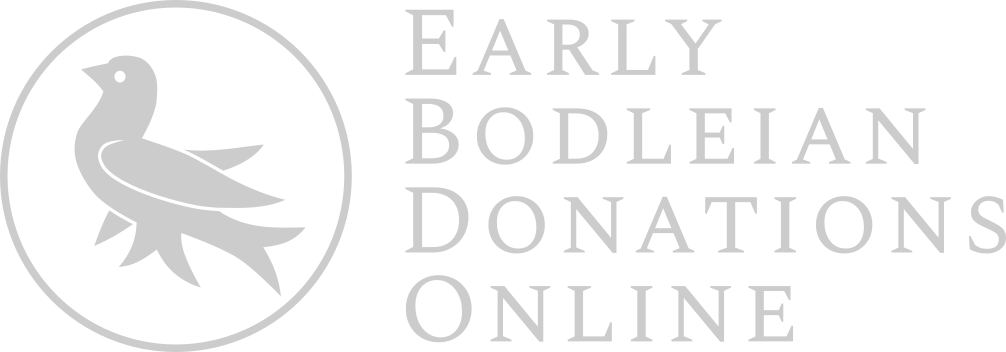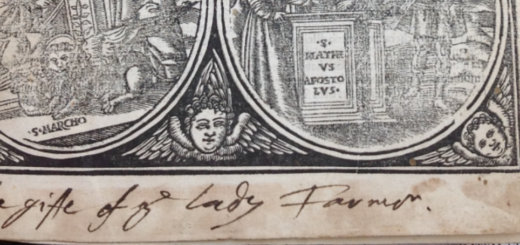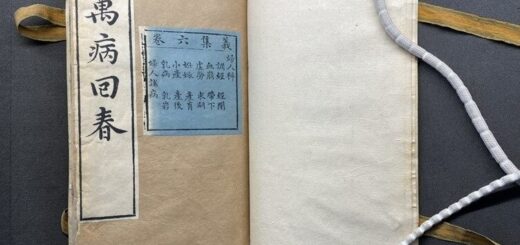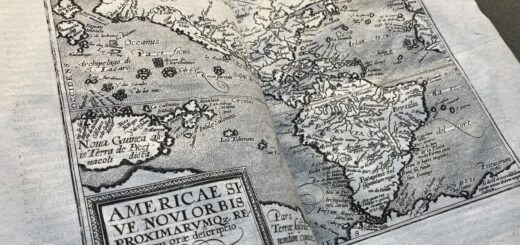A newly identified book from John Dee’s library: Michael Stifel’s Arithmetica Integra (Nuremburg, 1544)
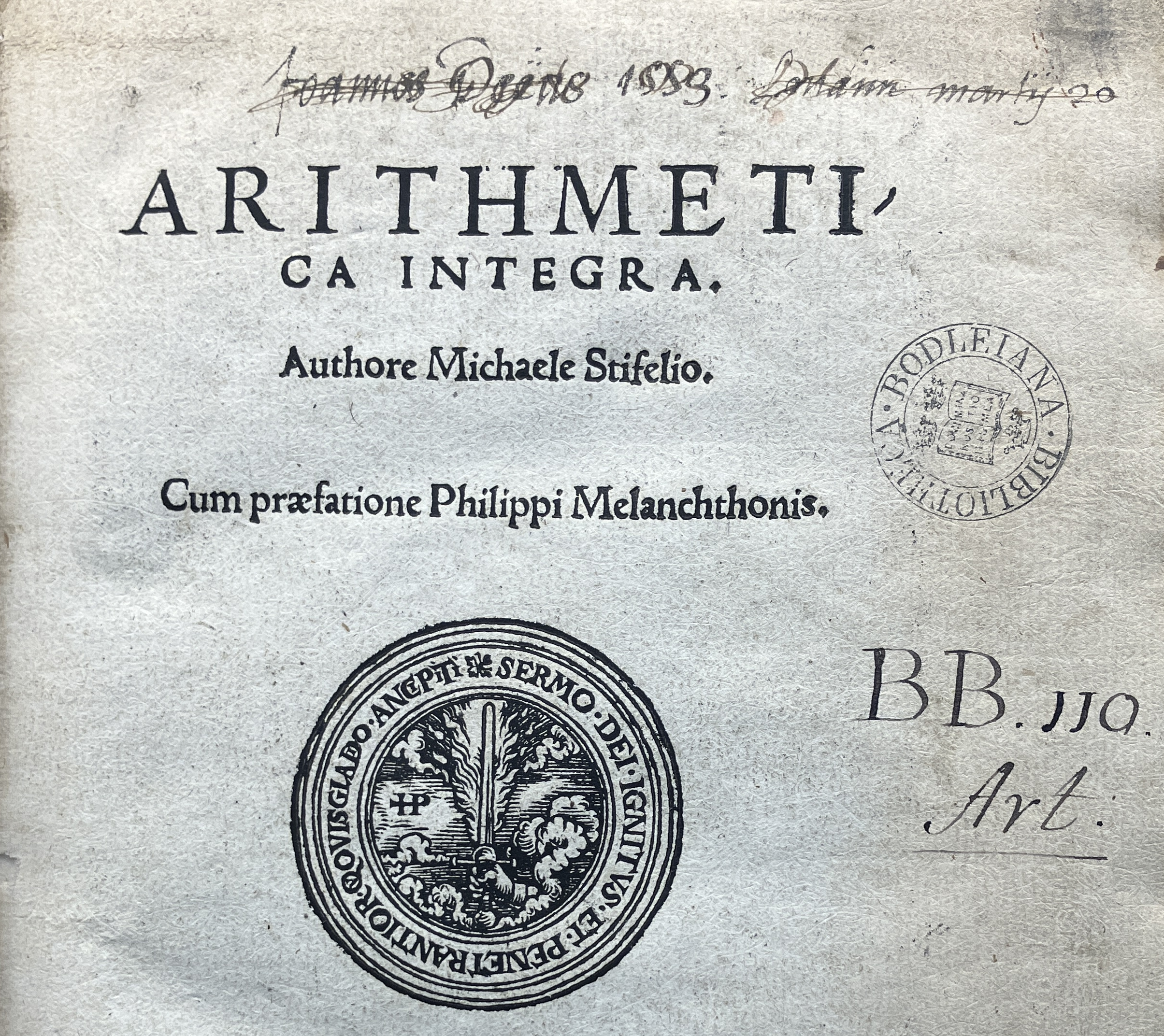
The Shaping Scholarship project has newly identified a book once owned by John Dee among the earliest gifts to the Bodleian Library. One of early modern England’s most famous book owners, and a figure who has captured the popular imagination, Dee amassed an extraordinarily large library at his house at Mortlake. Dee catalogued his library and was a prolific annotator; this has made him an important subject of book historical research including CELL’s own Archaeology of Reading project. His distinctive ownership inscription was immediately recognised by CELL PhD student Samantha Brown, having serendipitously stopped by to say hello in the Bodleian reading room.
The identified book is a copy of Michael Stifel’s Arithmetica Integra. This was an influential work in the development of algebra in Europe. It helped to disseminate the use of symbols such as the square root sign (√) and is credited with making early observations relevant to the later formulation of logarithms. Stifel, a German mathematician and sometime monk, was a friend of Martin Luther. Fellow Protestant reformer Philip Melancthon provided the preface for Stifel’s publication.
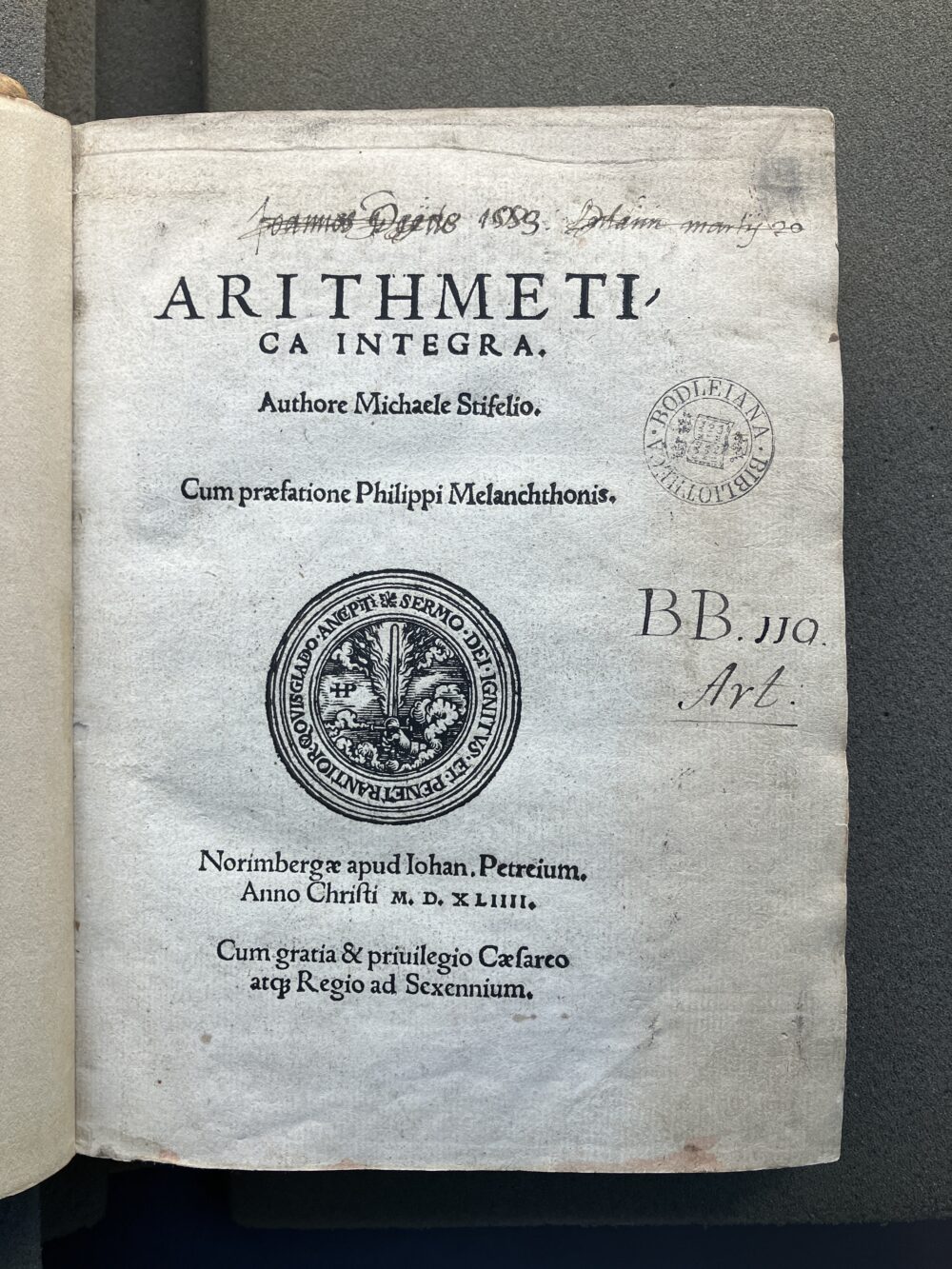
Printed in Nuremburg in 1544, the book was in London by 1553, where it was acquired by Dee. This was shortly after his return to England from Europe, where he had studied with some of the Continent’s foremost mathematicians and lectured on Euclid in Paris. At this point he was still establishing his career at court. He was also making a concerted effort to acquire books on mathematics. Over different occasions, Dee added some of his characteristic marginalia to the copy of Arithmetica Integra. Dee could fill a book with annotations but in this case they are concentrated in particular sections of interest, such as on musical scales (sigs. s2v–t3r) and on multiplying and dividing roots (sig. rr4r, Fig. 3 below).
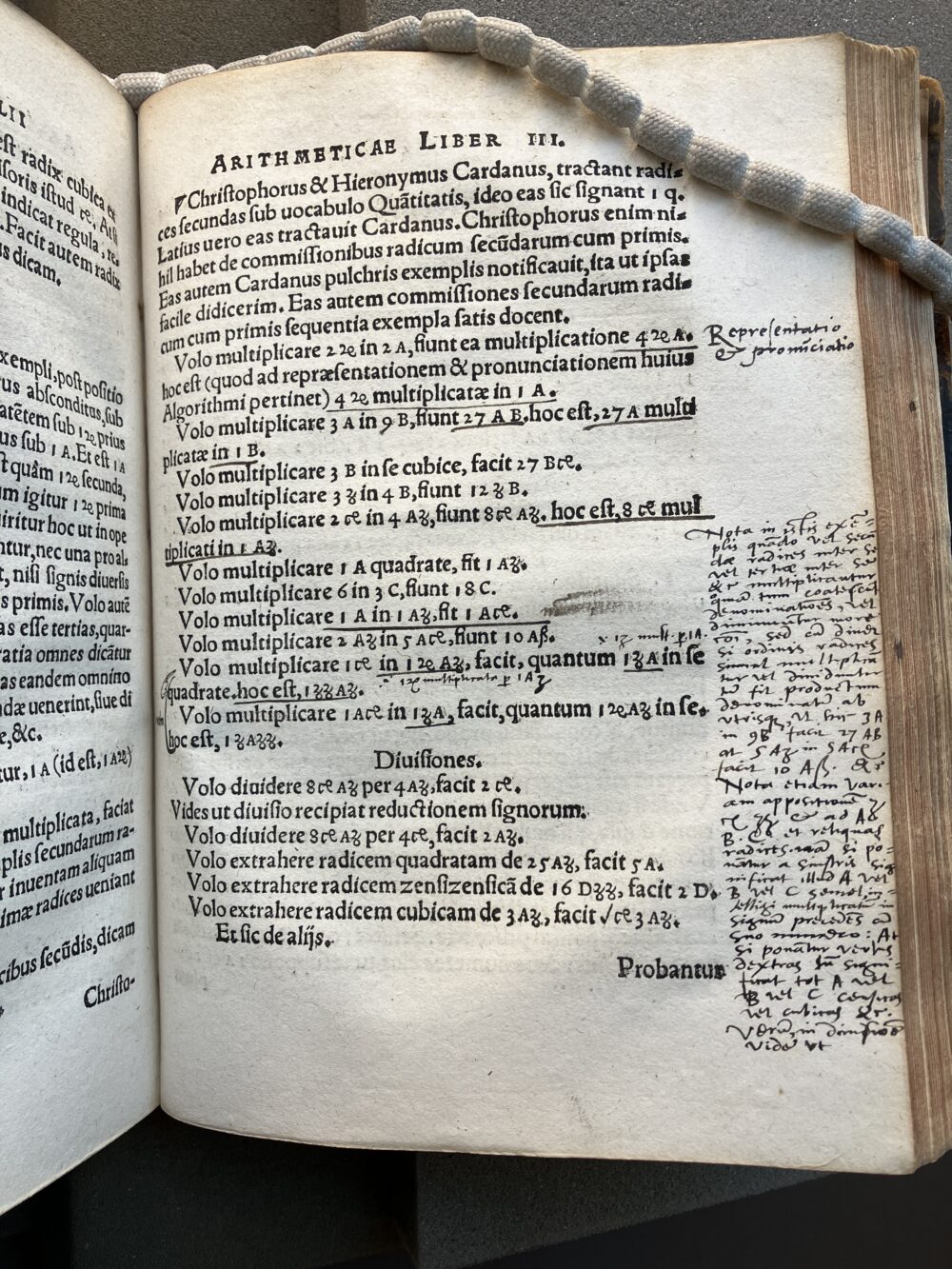
As Dee’s fortunes deteriorated over the latter part of his life, so did his library. During a period spent in Prague in the 1580s, books and instruments were stolen from Mortlake. According to Dee’s catalogue, however, the copy of Stifel’s Arithmetica Integra escaped this fate, being one of the many volumes Dee took with him to Prague. After his return to England in 1589, Dee found himself in financial difficulty and had to sell some of his books. The Arithmetica Integra may have left his possession in the early 1590s when Dee was still at Mortlake, or perhaps around the time of his move to Manchester in early 1596. By 1603, the book was in the possession of a Thomas Docwra, who gave it to the Bodleian library that year.
Following the gift, the title and edition of the book were carefully recorded under Docwra’s name in the Bodleian’s first Benefactors’ Register. The position of the volume on the library bookshelf (number eight) was discreetly written at the foot of the book’s fore-edge, which would have faced outwards. This number, which pre-dates the library’s 1605 catalogue, gives the strongest evidence that this is the very copy that was given by Thomas Docwra in 1603 and not a later duplicate accession. The fairly plain calf binding, which post-dates Dee’s ownership, gives little away. Other evidence may have been lost when intrusive repairs were made at a later date, at which point the original endpapers were replaced.
Who was this Thomas Docwra? Investigation by Robyn Adams has established that Docwra was a gentleman from Hertfordshire and one of a group of Bodleian benefactors belonging to Thomas Bodley’s extended family. Bodley called on this network to help him fill the shelves of the library he was re-founding at the University of Oxford. Some of Docwra’s other relatives, William Hakewill and Jerome Horsey, also donated. Docwra’s gift of twenty items was far from the biggest the library received, but it covered an impressive breadth of learning. Other books in his gift included a Talmud in Hebrew printed in Venice by Daniel Bomberg, a Greek catena on the Psalms in manuscript which was once owned by Cardinal Reginald Pole, and a copy of Euclid’s Elements in Greek, also in manuscript. A number of the gifted books—although not the one owned by Dee—were bound in a similar style, with a small stamp at the centre of each cover.
Whilst the Arithmetica Integra was acquired by Docwra not long before his Bodleian donation, its mid-sixteenth-century imprint is characteristic of the books he donated. This suggests that they were not bought together with the purpose of gifting, in which case you would expect the donation to include some more recent publications. Caution is required before confidently attributing the small collection to Docwra’s own intellectual pursuits, however, as we know that some donors gifted books that they had inherited and apparently did not want themselves.
John Dee’s book is a good example of how research by the Shaping Scholarship project is using early donations to the Bodleian library to uncover information about the ownership and circulation of books in early modern England more widely. By moving between records of benefaction and the actual library collections, we have been able to determine provenance information that is not discoverable from the books alone. In this case, the probable ownership and gift of the book to the library by Thomas Docwra in 1603 can only be deduced by looking at library records and marks in books together. Piecing different pieces of this jigsaw together allows us to see different aspects of early modern book cultures, such as the dispersal of grand private libraries, networks of book owners and library donors, and the contents of private libraries that are otherwise unrecorded.
Sources
The Archaeology of Reading in Early Modern Europe, <https://archaeologyofreading.org/>
Bodleian Libraries, Library Records b. 903, Registrum Donatorum (1600–1688), pp. 70–71.
E. Lobel, “Cardinal Pole’s Manuscripts,” Proceedings of the British Academy 17 (1931), pp. 97–101.
The National Archives of the UK, PROB 11/101/161, “Sentence of Thomas Docwra, of Putteridge, Hertfordshire”, 16 February 1603.
William Page, ed. ‘Parishes: Pirton’, in Victoria County History: A History of the County of Hertford, volume 3 (London, 1912), pp. 44–51. British History Online <http://www.british-history.ac.uk/vch/herts/vol3/pp44-51 [accessed 8 November 2023]>
Julian Roberts and Andrew Watson, eds. John Dee’s Library Catalogue (London: Bibliographical Society, 1990), no. 414 (also B211).
William Sherman, John Dee: the Politics of Reading and Writing in the English Renaissance (Amherst: University of Massachusetts Press, 1995).
Kurt Vogel, “Stifel (Styfel, Styffel, Stieffell, Stifelius, OR Stieffel), Michael (b. Esslingen. Germany, ca. 1487; d. Jena, Germany, 19 April 1567)” in Complete Dictionary of Scientific Biography, vol. 13 (Detroit, MI: Charles Scribner’s Sons, 2008), Gale eBooks.
